When Sylvester Stallone moved back to New York City to pursue a career in acting, he wasn’t anticipating becoming a writer, director and producer. But following the epic success of his 1976 sports drama film “Rocky,” Stallone was known for it all. He could act, fight and perform stunts in front of the camera. And behind it, he could direct, write and shoot like nobody's business.
Stallone’s Hollywood endeavors didn’t end with “Rocky,” of course. The Oscar-nominated actor-filmmaker later directed the blockbuster franchises “Rambo” and “The Expendables.” Although Stallone celebrated many wins throughout his lengthy career, he also suffered numerous lows — which he opens up about in an all-new Netflix documentary.
“Sly" chronicles Stallone’s life, from his early childhood to his love-hate relationship with the sport of polo, along with his career beginnings. Much of the focus is placed on “Rocky” and how the film is primarily based off of Stallone’s own upbringing and relationship with his father.
“What is healthier, to live under the illusion and still have a little glimmer of hope that you could have been great,” Stallone said in the documentary, “or blow it, and be like, ‘You’re a failure?’ I think the easier route is to live under the illusion. The rejection was my encouragement.”
Directed by Thom Zimny, the documentary features appearances from Stallone himself along with interviews from Arnold Schwarzenegger and director Quentin Tarantino.
Here are the six biggest moments from “Sly”:
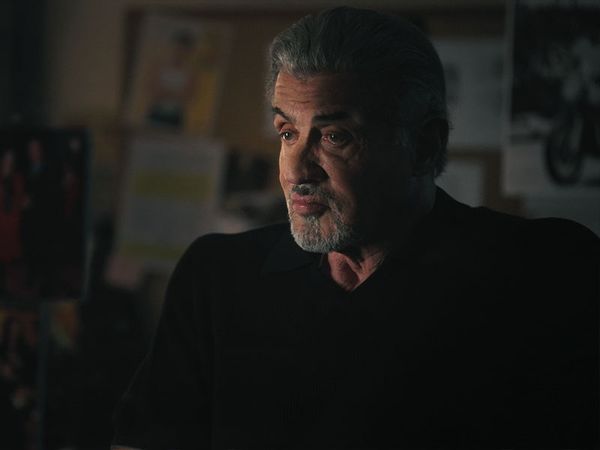 Sylvester Stallone in "Sly" (Netflix)
Sylvester Stallone in "Sly" (Netflix)Stallone grew up in Hell's Kitchen, New York, NY, which he described as a “rough” neighborhood amid the late '40s. His father, Francesco "Frank" Stallone Sr., worked as a hairdresser while his mother, Jacqueline "Jackie" Stallone, worked as a cigarette girl at Billy Rose’s Diamond Horseshoe nightclub.
Stallone and his younger brother, musician Frank Stallone Jr., recalled being “pawned off” by their parents because both Frank and Jackie were so "self-absorbed" with their own careers.
“The majority of the time I was living in a boarding house. Basically 12 months a year, never went home, ‘cause they just didn’t have time,” Stallone said. “They were both working.”
He continued, “And people say, ‘Oh, you feel deprived and you weren’t nurtured.’ I thought, ‘Yeah that’s true.’ And maybe the nurturing comes from the respect and love of strangers. To feel embraced and loved by an audience, it’s insatiable. I wish I could get over it, but . . . you can’t.”
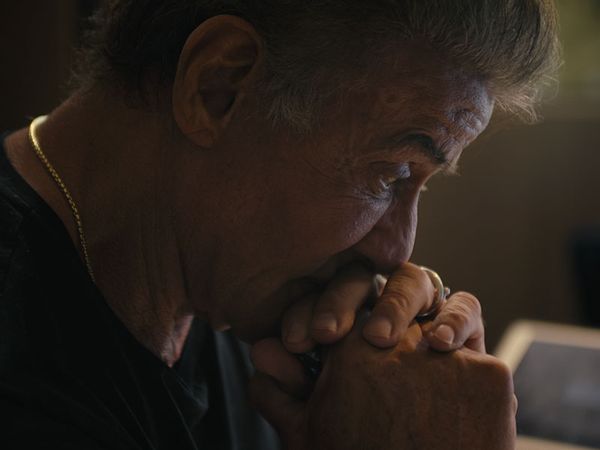 Sylvester Stallone in "Sly" (Netflix)
Sylvester Stallone in "Sly" (Netflix)Following his parent’s bitter divorce, Stallone moved to rural Maryland with his father. Although Frank didn’t have much money to spare, he got involved with a local polo team and bought horses of his own for around $20 to $25 each. Stallone said he loved the horses he grew up with, even though many of them were in poor shape.
“The horses, most of ‘em, had medical problems. Some of ‘em, if you pulled up too quickly, they’d go blind,” he said. Stallone later began playing low-level polo before advancing to more nationally ranked competitions.
“So I started playing polo, but sandlot kind of polo, low level. But I learned. Anyway, I started getting better and better and better,” he said. “And then when I was 13, I was starting to get ranked. I’m gonna get nationally ranked.
“My father wasn’t liking that so much. And in the middle of a game, I was going for a nearside backhand, and I didn’t do anything wrong, he goes, ‘You’re pulling too hard on the horse!’ I said, ‘I know what I’m doing.’ He goes, ‘You don’t! You don’t know what you’re riding.’ Screaming from the stands.”
Stallone continued, “And finally I pulled the horse up to get ready for another throw, and he comes out of the stands, grabs me by the throat, throws me on the ground, takes the horse and walks off the field.”
“And I laid there and I went, ‘I never want to see a horse again in my whole life.’”
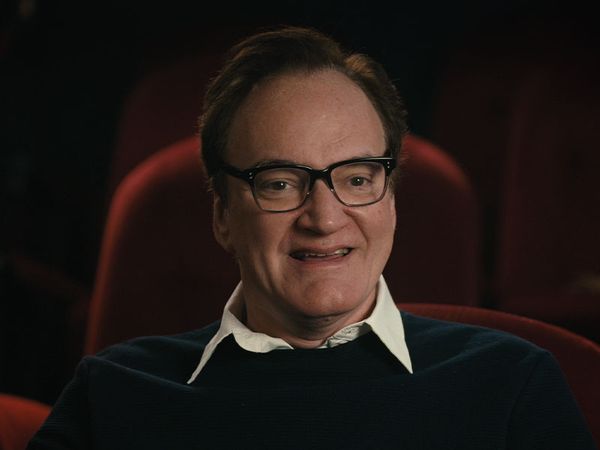 Quentin Tarantino in "Sly" (Netflix)
Quentin Tarantino in "Sly" (Netflix)The 1976 film, which follows a poor but persistent small-time club fighter, was written by Stallone himself. “Rocky” premiered in New York City on November 20, 1976, a day that became one of Stallone’s biggest moments in life.
“When he knocks Apollo down, the whole theater went up, and the producers all look and it’s like, ‘Holy s**t,’” Stallone said. “The audience is participating like it’s a real sporting event. We blurred the lines.”
In the documentary, Quentin Tarantino added, “We just assumed he would be a joke out there fighting against Creed. But when he knocks him on his back in the first round, that kind of excitement, it was almost unheard of.”
Tarantino continued, “It was one of the really glorious moments of an audience reacting to the drama on screen. To see that fairy-tale story come to life, it just turned the audience on.”
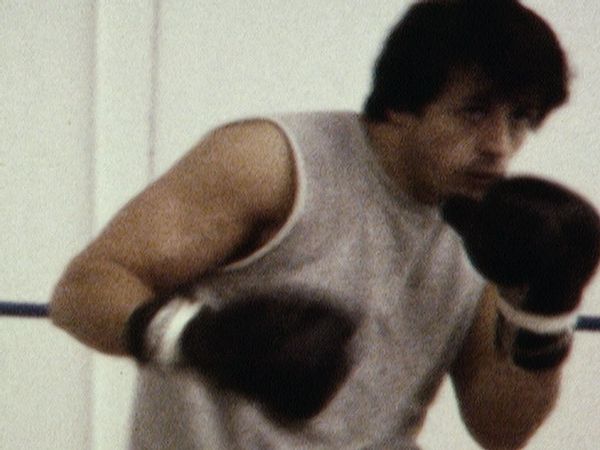 Sylvester Stallone archival photo in "Sly" (Netflix)
Sylvester Stallone archival photo in "Sly" (Netflix)Following the success of “Rambo,” Stallone became a notable action movie star in Hollywood. His main competitor at the time was Arnold Schwarzenegger, who made a name for himself after starring in the 1984 sci-fi/action film, “The Terminator.”
“Sly, all of a sudden with ‘Rambo,’ he stepped into my arena,” Schwarzenegger said in the documentary. “All of a sudden he was ripped, and everyone talking about his body. And so that created competition, of course.
“At that point we were like little kids. Who uses bigger knives? Who uses the biggest guns and holds them in one arm and [imitates gunfire]? And who has more muscles, who has more muscle definition, who has less body fat? I mean, stupid stuff that we would be fighting over. Now we look back and we laugh at the whole thing.”
The actors have costarred in two "Expendables" movies together.
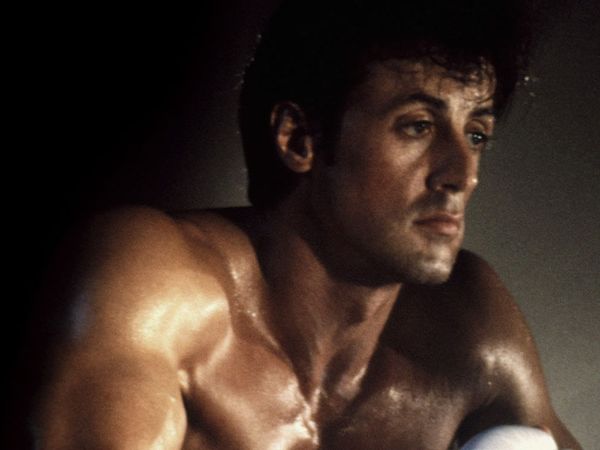 Sylvester Stallone archival photo in "Sly" (Netflix)
Sylvester Stallone archival photo in "Sly" (Netflix)Stallone began playing polo again when he was about 40 years of age. He decided to go up against his father in one game, which took place at the National Polo Center in Wellington, Florida — the No. 1 field in the world — and included a “super-team” of 10 goal players.
“So I’m out there, playing well. My father, we’re going neck and neck, and I go out for a nearside,” Stallone recalled. “My father spears me in the back. Hit me so hard, I went down. 'Entertainment Tonight' is there. The horse walked right over. I don’t know how it didn’t kill me. But I see myself getting up, and the first thing was like [groans]. And I think, ‘He just rode away.’
“That was it. I never played polo again from that moment on. I sold everything. I sold every horse, the ranch, the truck, and that was the end."
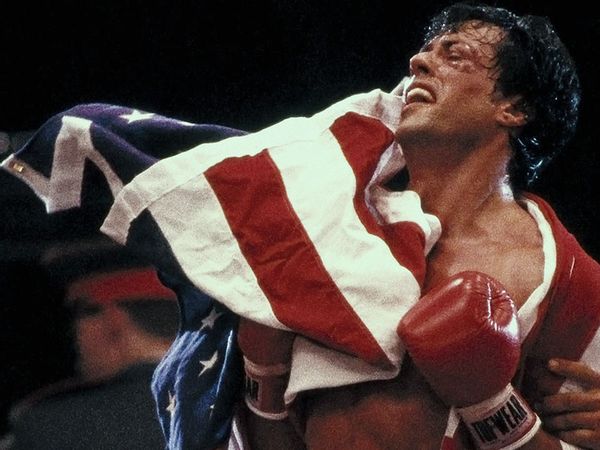 Sylvester Stallone "Rocky" photo in "Sly" (Netflix)
Sylvester Stallone "Rocky" photo in "Sly" (Netflix)Much of Rocky’s storyline was akin to Stallone’s personal life, especially the tumultuous relationship he shared with his father. Throughout the documentary, Stallone spoke about how he craved love as a child and later grew bitter as an adult. Much of his anger was channeled into filmmaking and art.
“I wasn’t given a shot, really. In my childhood, everything was . . . it was not good,” Stallone said. “So in my world, the Stallone film world, what wouldn’t normally happen can happen. That this loser fighter is gonna become a winner.
“I was blessed with an ability to deflect this bitterness into what I wish . . . what I wish had happened,” he added. “I wish I had a father like Rocky.”
"Sly" is currently available for streaming on Netflix. Watch a trailer for it below, via YouTube:


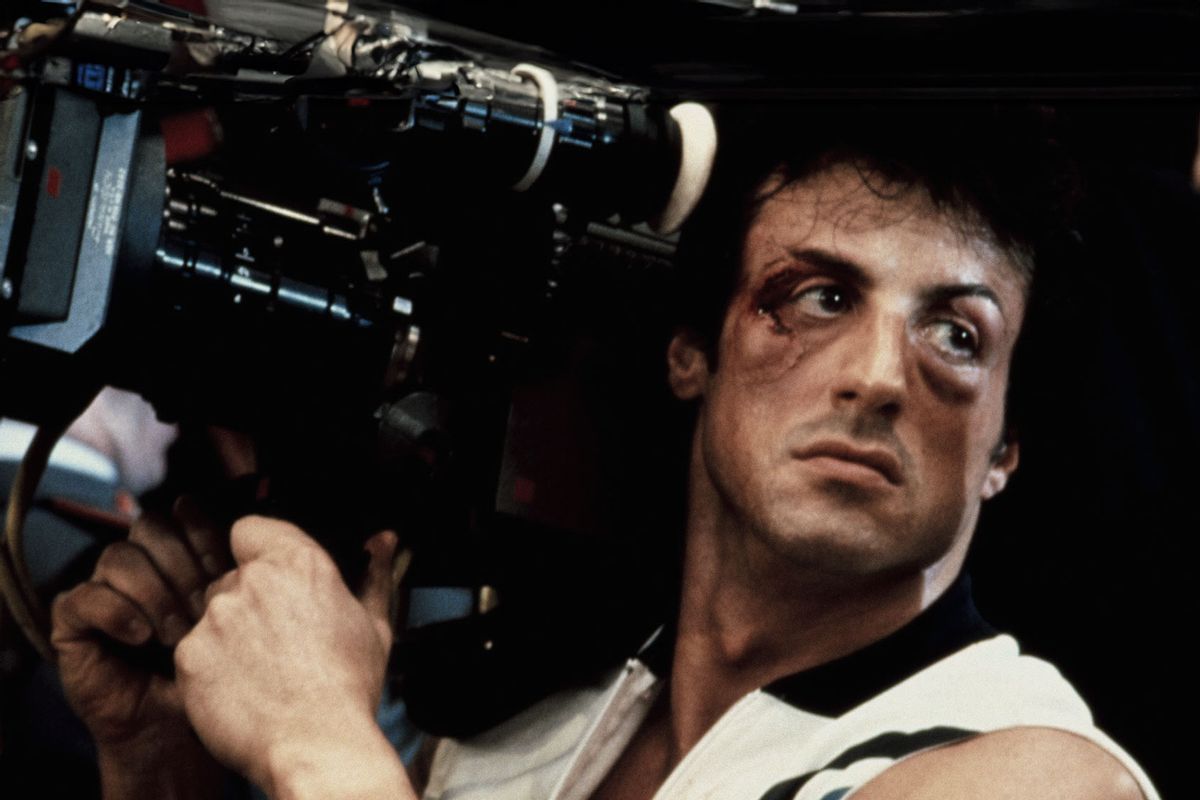
Shares